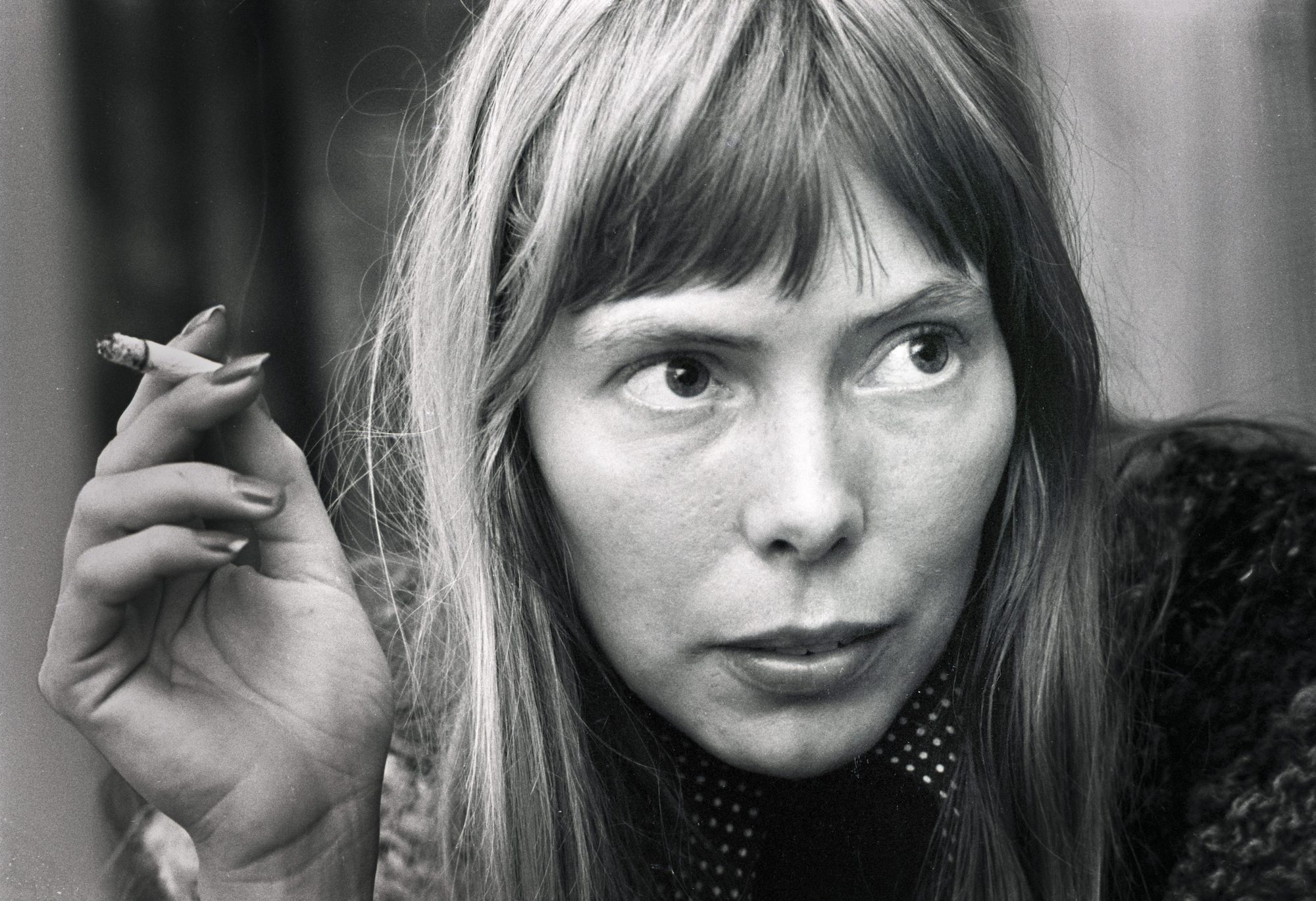Joni Mitchell ‘Horrified’ People With Her Iconic Album ‘Blue’
Joni Mitchell is an iconic artist that came out of the ’60s folk music era. Her emotional vulnerability was felt in all the songs she composed, especially those found on her 1971 album entitled Blue. While the album sold over a million copies, some people were “horrified” by the raw intimacy expressed in the stirring sounds and moving lyrics.
Mitchell stayed true to herself throughout the recording of the album, pulling from her many life experiences endured in her troubled past. Although her honesty scared some, the one-of-a-kind artist found a way to express her true self through her music.

The legendary career of Joni Mitchell
Born in Canada in 1943, Mitchell became an integral part of the artist scene in California. During the ’60s, the singer-songwriter created songs that reflected a social commentary of the world around her. She pulled from her true-life feelings about romance, disillusionment, and the political agenda of the time.
Mitchell’s heartfelt lyrics spanned the genres of folk, jazz, pop, classical, and rock. She spoke of troubled relationships and a longing for her daughter, who she gave up for adoption. Her sense of insecurity in the world added to the allure of her songs.
Romantic involvements with fellow musicians included Graham Nash, James Taylor, and Leonard Cohen. The loved shared and then divided are vividly expressed in her hauntingly candid lyrics.
An honored member of the Rock and Roll Hall of Fame, the consummate performer has spent her lifetime connecting with fans across the globe. The beloved artist won her first Grammy in 1969 for the folk album Clouds. This milestone was followed up by 16 nominations and 18 wins.
In 2002, Joni Mitchell was awarded the Lifetime Achievement Award from the Recording Academy. She is best known for a repertoire of songs that include “River,” “Big Yellow Taxi,” “California,” and “Amelia.”
‘Blue’ is Mitchell’s purest emotional record
Friends told Mitchell that her Blue album was too personal. Determined to not hold back any secrets from the world, the compilation of songs is an intimate look at Mitchell’s most turbulent struggles.
While working on the album, the singer-songwriter found herself vulnerable after unwillingly putting her daughter up for adoption. Blue is an emotional plea of discovery as Mitchell attempted to pull out of her despair and figure out who she was and, more importantly, who she was becoming.
Mitchell claims to have found inspiration for Blue from Bob Dylan, another legendary artist from the ’60s. She replicated his no-hold back style of pushing past limits and using a first-person narrative approach to tell her stories.
According to Biography, while reflecting on the success of the album, in 2013, “The Circle Game” performer said, “I was being told that people were horrified by the intimacy of it. People said it was shocking. It wasn’t. It was about human nature. It’s all I had to work with. It’s a soul trying to find itself and seeing its failings and having regrets. What’s so horrible about that?”
One of the best albums of all time
Mitchell’s award-winning Blue album was extremely successful, earning her a spot in the Grammy Hall of Fame. Last year, Rolling Stone placed it third on their list of “500 Greatest Albums of All Time.”
In 1979, the legendary artist said, “… there’s hardly a dishonest note in the vocals. At that period of my life, I had no personal defenses. I felt like a cellophane wrapper on a pack of cigarettes.” She continued, saying, “I couldn’t pretend in my life to be strong. Or to be happy. But the advantage of it in the music was that there were no defenses there either.”


